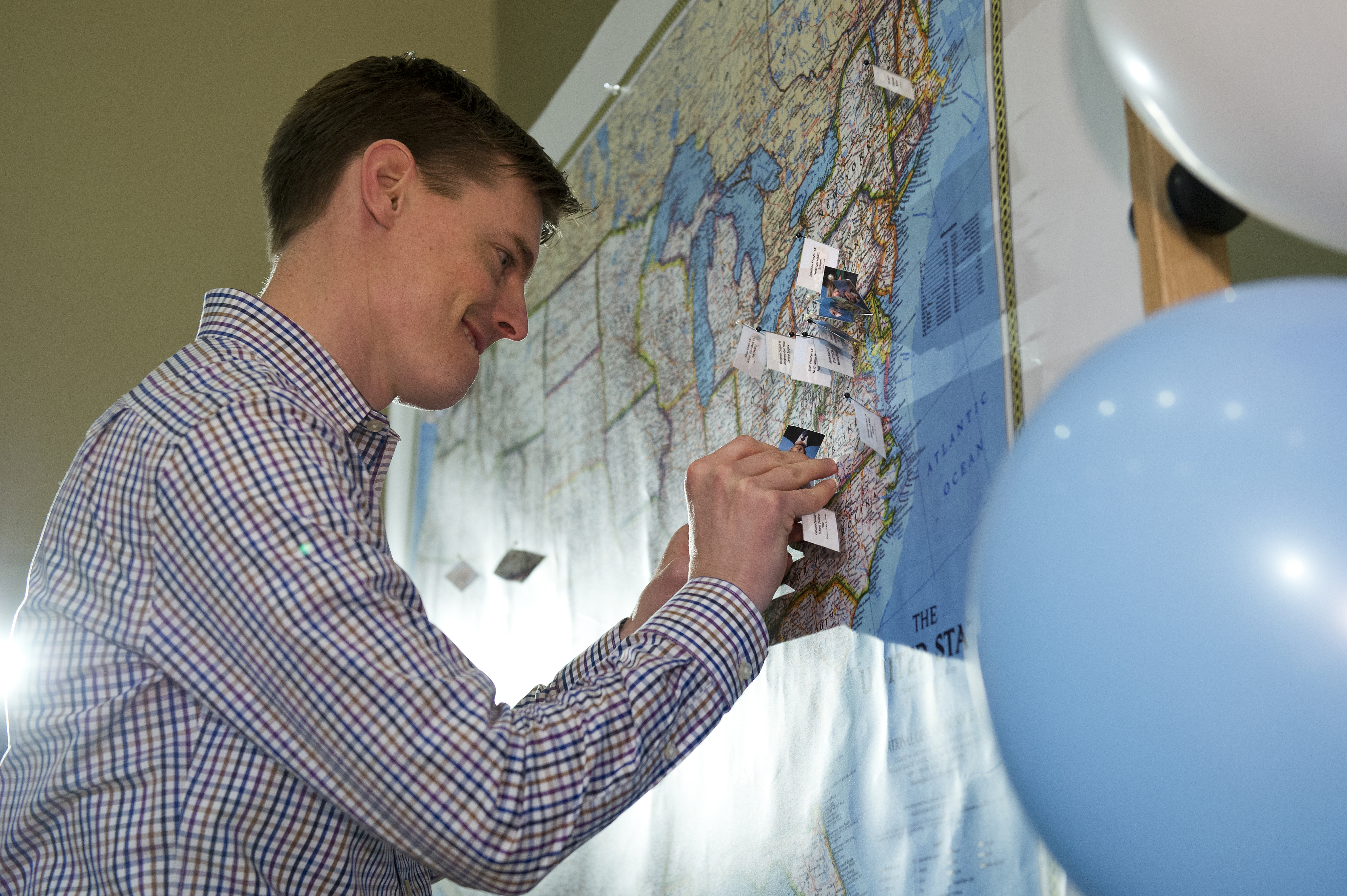A perfect match: Virginia Tech Carilion School of Medicine's inaugural class achieves 100 percent in residency matches

Last Friday was a suspenseful day at the Virginia Tech Carilion School of Medicine as 40 soon-to-be doctors learned where the next leg of their journey would take them. And they were in good company, too, as thousands of medical students across the country were anxiously doing the same thing.
Match Day is part of the National Resident Matching Program, which matches fourth-year medical students with residency programs across the country. It is a ceremony that has been played out on medical school campuses for decades.
“Almost every doctor can remember their Match Day,” said Dr. Cynda Johnson, dean of the Virginia Tech Carilion School of Medicine. “It’s an important milestone. More than just a ceremony, Match Day is a life-determining experience. It points the path to their future -- their specialty and location of training."
Match Day involves a complex algorithm that matches students’ preferences for the location and specialty of their residency with the residency programs’ ranking of applicants. The results are revealed at the same time on the same day at all medical schools in the United States.
As the countdown began in the Virginia Tech Carilion School of Medicine’s auditorium, each student clutched a sealed envelope with a letter detailing where they would spend the next phase of their medical careers. At noon, they opened their envelopes and, in a short flurry, the suspense was over.
“We’re thrilled that our charter class had a 100 percent match rate,” Johnson said. “This means that all our fourth-year students were matched with one of their requested residency programs. There’s a shortage of available residencies, so this is a huge accomplishment for our students. It’s also an important national benchmark for our school.”
Matches included such heavy hitters as Duke, Emory, Georgetown, Northwestern, the University of North Carolina at Chapel Hill, and Vanderbilt. The most frequently matched specialty areas were in general surgery, emergency medicine, radiology, and internal medicine.
More than a quarter of the class – 11 students – will remain in Roanoke for at least the next year. At least three students will complete their training in Roanoke while five others know they will complete residencies elsewhere after one year in Roanoke because they had chosen to match in a specialty, such as radiology, which requires a preliminary year of training before entering the specialty.
“Our students have been so graciously welcomed and nurtured by our community for the last four years,” said Dr. Aubrey Knight, the school’s associate dean for student affairs. “It’s gratifying to see so many of them want to continue their time in Roanoke.”
“We’ve relished the past four years with our first class of students,” Johnson said, “and we will proudly send them on the next leg of their training when we hold our first commencement on May 10.”
The National Resident Matching Program started in 1952 in an effort to standardize how medical students are matched with residency programs. Students begin the process at the beginning of their final year of medical school by applying for residency programs. After the programs review the applications, selected candidates are invited to interview. When the interviews are complete, both the students and the programs compile ranked lists of their choices, in a process culminating in Match Day.
Virginia Tech Carilion School of Medicine students were invited to interview at institutions in 41 states.
Written by Catherine Doss.




